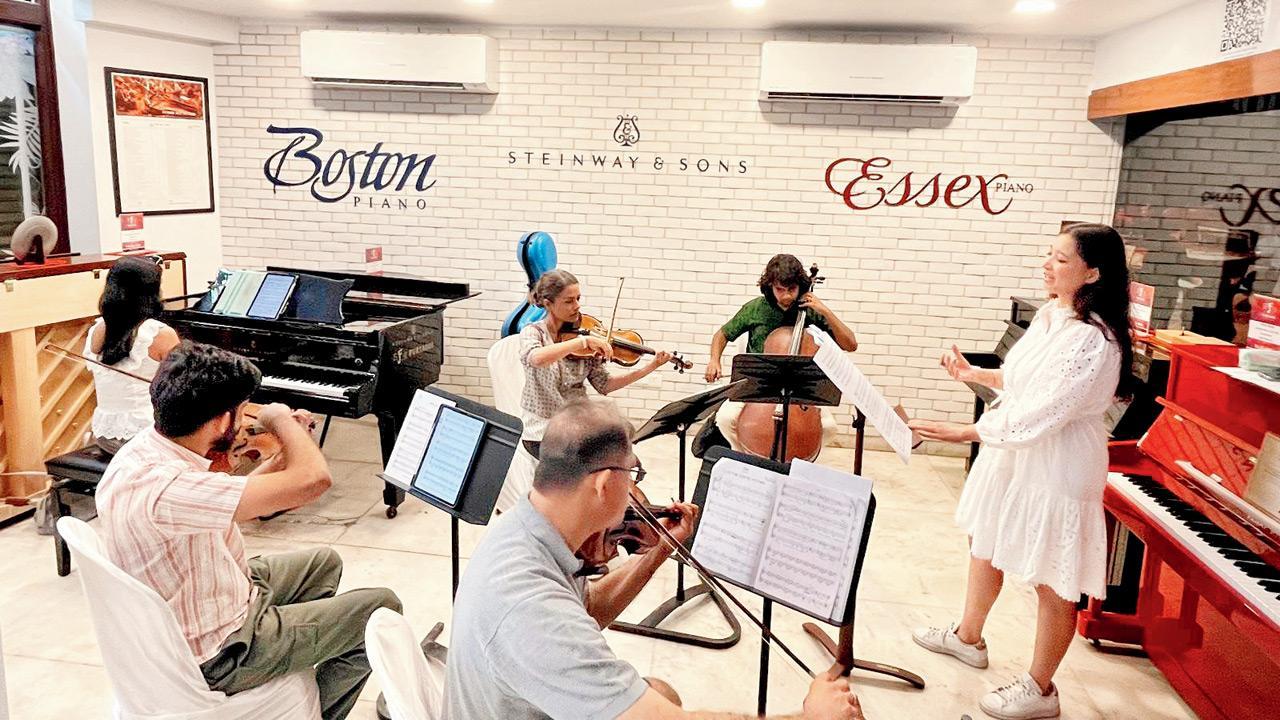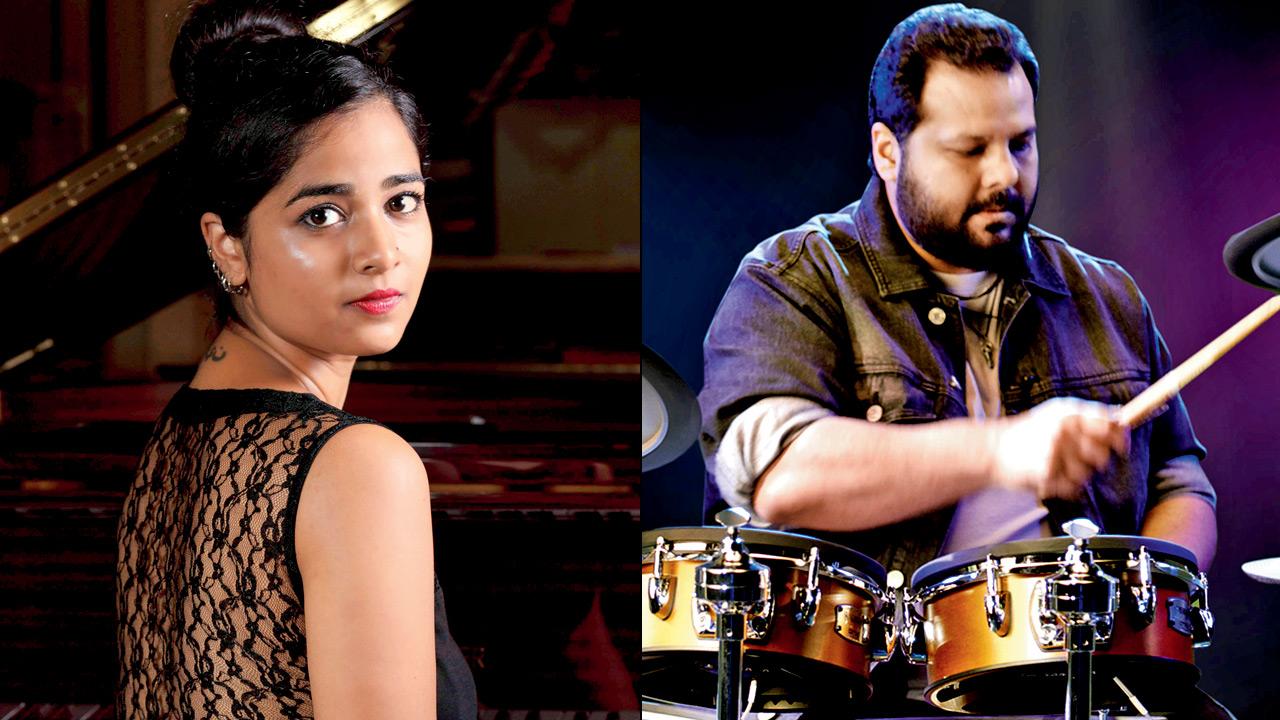In a concert that weaves together the Western Classical and Hindustani forms, singer-composer Cheryl Bains will transpose epics of Indian goddesses to the operatic stage

Cheryl Bains (right) leads the string quartet in rehearsals with Nadine Crasto (on piano) ahead of their performance
The feminine has been at the heart of all great myths. Growing up in Singapore, Cheryl Bains had heard them all. “Two things have been important to me in my life; stories and music,” the 25-year-old reveals. On Friday, she will bring to stage a union of these two forms in a complex, lavish opera titled The Legend of the Goddess: Vedic Tales meet Opera.
ADVERTISEMENT
Hosted by The Royal Opera House Theatre Mumbai and Avid Learning, it will be the Mumbai premiere of Bains’ production. “This will be our first week of rehearsing,” shares the composer, who will be joined by Nadine Crasto (piano), Gino Banks (percussion), Zubin Behramkamdin (first violin), Daniel Dias (second violin), Dielle Braganza (viola) and Leo Velho (cello) on stage. A trained opera singer from the Manhattan School of Music, and having performed in operas such as Don Giovanni and The Sound of Music, the composer was drawn to myths of Ganga, Durga, and Lord Shiva that she grew up with in Singapore.
Where East meets West
But it is easier said than done to blend Indian myths with Western form. “You cannot exactly take one tradition and move it into another,” the composer admits, adding that the key was to find a synthesis.

A moment from Bains’ performance. Pic Courtesy/Royal opera HOUSE MUMBAI
To this end, she crafted the opera in four acts. The first, entitled Primordial Waters, is built around the divine mother who birthed the cosmos. “As is traditional, I composed a Saraswati Vandana to open the performance. This segues into the story of Maa Ganga, and the story of her descent to Earth; followed by the Ganga Tandav by Lord Shiva,” Bains elaborates.
The second act is crafted around the hero, Goddess Durga — the warrior. The movement’s warrior theme, inspired Bains to include the Aigiri Nandini stotra, and the Kali Tandav in her narrative. In some ways, the Goddess would not be out of place in a Wagner opera. The composer concurs. “I wanted to portray her with a heroic theme as Wagner or Verdi would,” she adds.
The third and fourth acts of the opera are romances, along the 19th Century opera style. Where the third act of Tripura Sundari — the story of Lord Vishnu and the Goddess Lakshmi — revolves around union and separation; the fourth act tells of the story of Lord Shiva and Parvati.

Nadine Crasto and Gino Banks
“It is a joyful and heart- wrenching story. It begins with the love and marriage, and separation of Sati and Shiva. I have created an aria for Lord Shiva, written in the Bel Canto [long, sustained vocal lines showcasing beauty of the voice] style. The finale is the Gauri Shankar Tandav, written in the Rupak taal, that highlights their joyful reunion,” concludes Bains, who also trained in Hindustani classical music for 18 years.
Sky is the limit
If this sounds ambitious, Bains agrees. “It is a very big undertaking, and nerve wrecking too,” she admits. The team though is excited. Drummer Gino Banks points out, “The music is melodically scripted and arranged. It is the soundscape that will enhance it.” The drummer will bring the percussion of a hybrid set to add to the exotic theme.
Pianist Nadine Crasto is more familiar with the operatic form. She explains, “It is a 50-50 fusion [of Western and Hindustani music]. The scales and ragas are in Hindustani classical music that she [Bains] has woven into
Western and operatic structure.”
“As a composer, the narrative challenges me to give my musicians more textures, solos, and offer them a role in the storytelling process. I do enjoy the challenge,” Bains concludes.
ON March 7; 7.30 pm
AT Royal Opera House Theatre, Charni Road, Girgaon.
LOG ON TO in.bookmyshow.com COST R499 onwards
 Subscribe today by clicking the link and stay updated with the latest news!" Click here!
Subscribe today by clicking the link and stay updated with the latest news!" Click here!







